X7 moves at 700 miles per second as it nears Sagittarius A*, the Milky Way’s black hole.
The evolution of X7 near sagittarius A*.
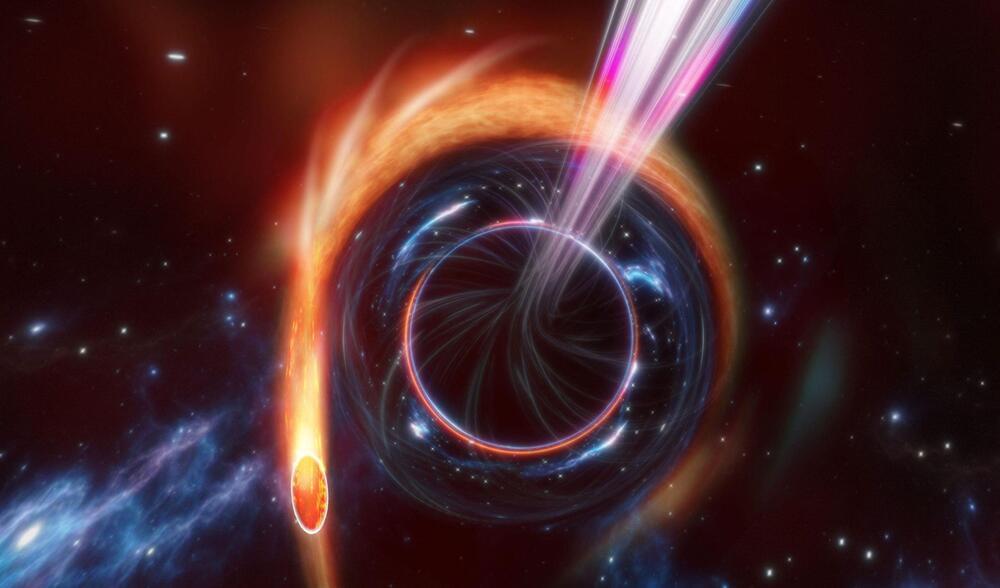
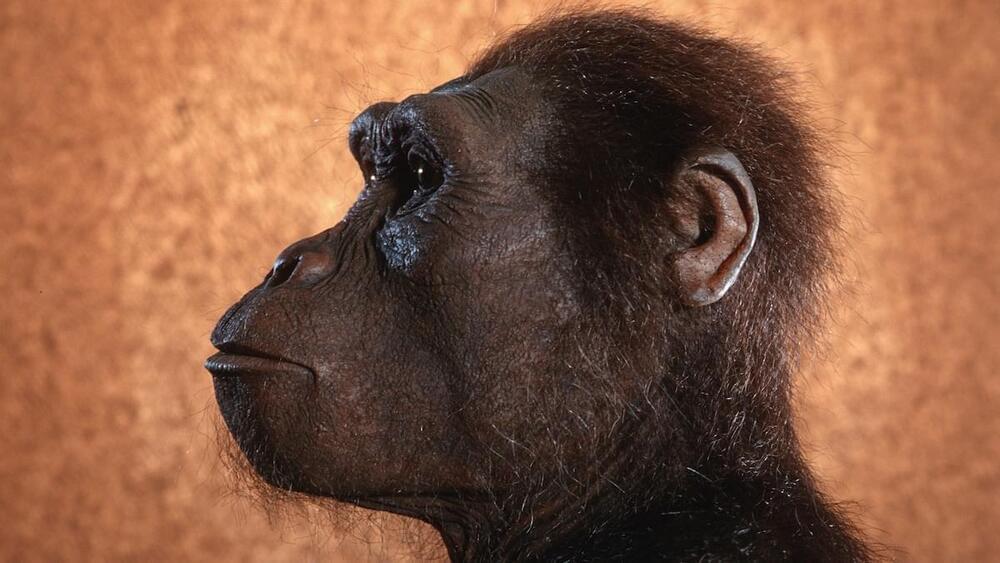

As we countdown the days until the New Year, we are revisiting our top stories of 2024! For today, a study may have uncovered why we get our energy from our mothers.
Read our coverage.
But what happens when this process fails?
Delaying PME results in impaired physiological function
Xue and the team studied PME in Caenorhabditis elegans (C. elegans), a translucent roundworm, to gain insight into this elusive mechanism. C. elegans only have 1,000 cells, yet they still develop a nervous system, gut, muscles and other tissues like humans.
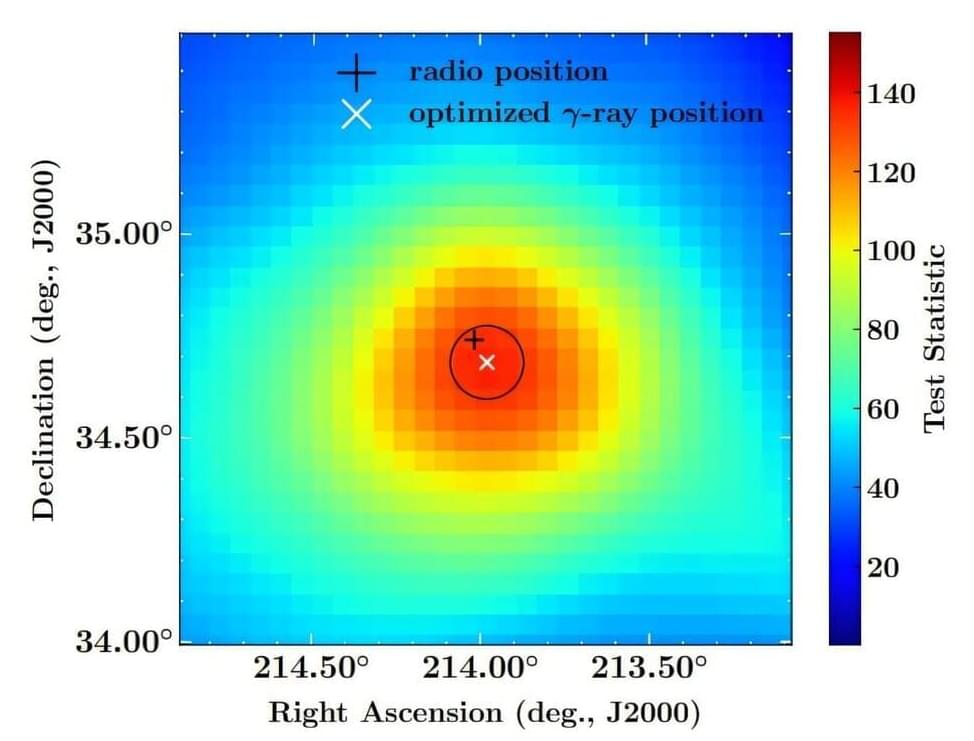
Indian astronomers have performed a multiwavelength study of a gamma-ray emitting compact symmetric object known as DA 362. Results of the study, presented in a research paper published December 17 on the pre-print server arXiv, yield more insights into the nature of this enigmatic object.
Compact symmetric objects (CSOs) are young jetted active galactic nuclei (AGN) with an overall projected size below 3,300 light years. Although CSOs are still not well investigated, observations found that they showcase symmetric radio morphologies and are likely to be in the early stages of their evolution with kinematic ages smaller than a few thousand years. To date, only four CSOs have been found to emit gamma-rays.
The newest gamma-ray emitting CSO is DA 362, also known as B2 1413+34. It was initially classified as a blazar candidate of uncertain type, associated with a gamma-ray source designated 4FGL J1416.0+3443.
What lies ahead in the aftermath of the Technological Singularity? Could the latest scientific breakthroughs refine our theological understanding? Do we live in a simulated multiverse? Are we alone in the universe? Can we achieve cybernetic immortality? When and by what means might we transcend our human condition? These profound inquiries are at the core of this enlightening volume.
#Theogenesis #CyberneticTheoryofMind #posthumanism #consciousness #evolution #cybernetics #theosophy #futurism #SyntellectHypothesis #PhilosophyofMind #QuantumCosmology #ComputationalPhysics #PressRelease #NewBookRelease #AudibleAudiobook #AmazonKindle
Ecstadelic Media Group releases THEOGENESIS: Transdimensional Propagation & Universal Expansion, The Cybernetic Theory of Mind series by Alex M. Vikoulov as an Audible audiobook in addition to a previously released Kindle eBook (Press Release, Burlingame, CA, USA, December 21, 2024 07.17 AM PST)
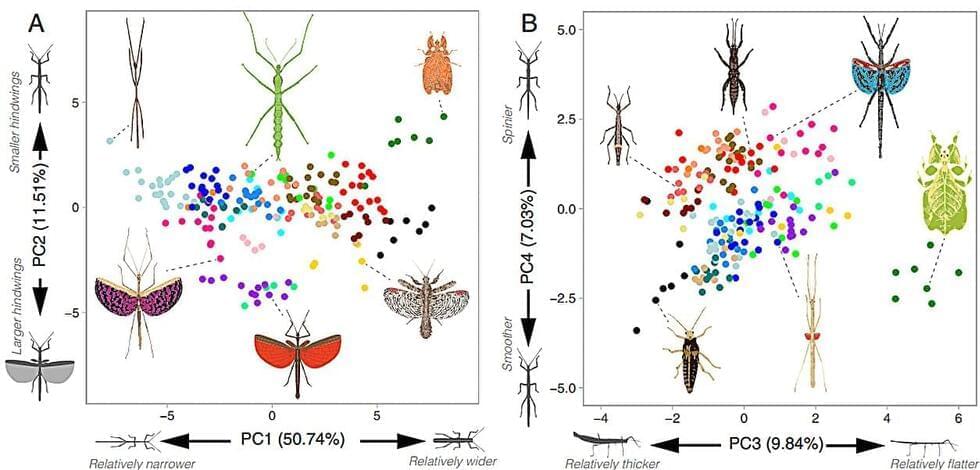
A team of biologists in Montana and Germany has found that, regardless of type, those insects that express a protective stick-or leaf-like appearance all evolved the same basic body parts. In their study, published in the journal Proceedings of the National Academy of Sciences, Romain Boisseau, Douglas Emlen and Sven Bradler measured and compared characteristics from 1,359 stick insects covering 212 stick and leaf species and assessed the possibility of predicting evolutionary change.
Prior evidence has shown that similar physical characteristics can evolve in unrelated creatures, a process called convergent evolution. For this new study, the researchers looked at two specific types of insects to learn more about how convergence works. They discovered that stick-and leaf-imitating insects had all evolved the same 20 basic body features, including body shape, head shape and lobster-like features. In all cases, they noted, the features had evolved to help the insects blend into the background to avoid being eaten by predators.
Something else the team learned was that because the same body parts kept evolving in different insects, they could predict how some modern insects will evolve. The key was looking at the environmental factors that led to changes that had already occurred. Creatures that live in similar environments, they note, tend to evolve in similar ways, including their means of camouflage. This tends to be the best way to avoid predators.

Human evolution is linked to the manipulation of the environment. Since the first hominid to use a stone as a tool — or a bone according to the iconic scene from 2001: A Space Odyssey —, we have come to recognise this as materials science. This discipline uses physics, chemistry and engineering to study how materials are formed and what their physical properties are, as well as to discover and develop new materials, such as smart materials in order to find new uses applicable to any sector.
Smart materials are materials that are manipulated to respond in a controllable and reversible way, modifying some of their properties as a result of external stimuli such as certain mechanical stress or a certain temperature, among others. Because of their responsiveness, smart materials are also known as responsive materials. These are usually translated as “active” materials although it would be more accurate to say “reactive” materials.
For example, we can talk about sportswear with ventilation valves that react to temperature and humidity by opening when the wearer breaks out in a sweat and closing when the body cools down, about buildings that adapt to atmospheric conditions such as wind, heat or rain, or about drugs that are released into the bloodstream as soon as a viral infection is detected.

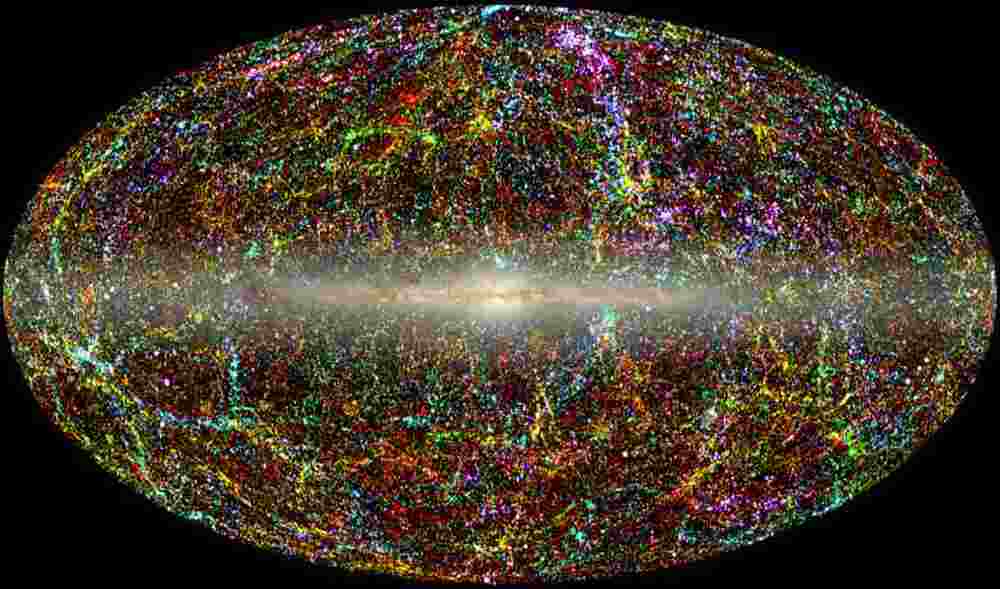
As the universe evolves, scientists expect large cosmic structures to grow at a certain rate: dense regions such as galaxy clusters would grow denser, while the void of space would grow emptier.
But University of Michigan researchers have discovered that the rate at which these large structures grow is slower than predicted by Einstein’s Theory of General Relativity.
They also showed that as dark energy accelerates the universe’s global expansion, the suppression of the cosmic structure growth that the researchers see in their data is even more prominent than what the theory predicts. Their results are published in Physical Review Letters.

Extraterrestrial and artificial life have long captivated the human mind. Knowing only the building blocks of our own biosphere, can we predict how life may exist on other planets? What factors will rein in the Frankensteinian life forms we hope to build in laboratories here on Earth?
An open-access paper published in Interface Focus and co-authored by several SFI researchers takes these questions out of the realm of science fiction and into scientific laws.
Reviewing case studies from thermodynamics, computation, genetics, cellular development, brain science, ecology, and evolution, the paper concludes that certain fundamental limits prevent some forms of life from ever existing.